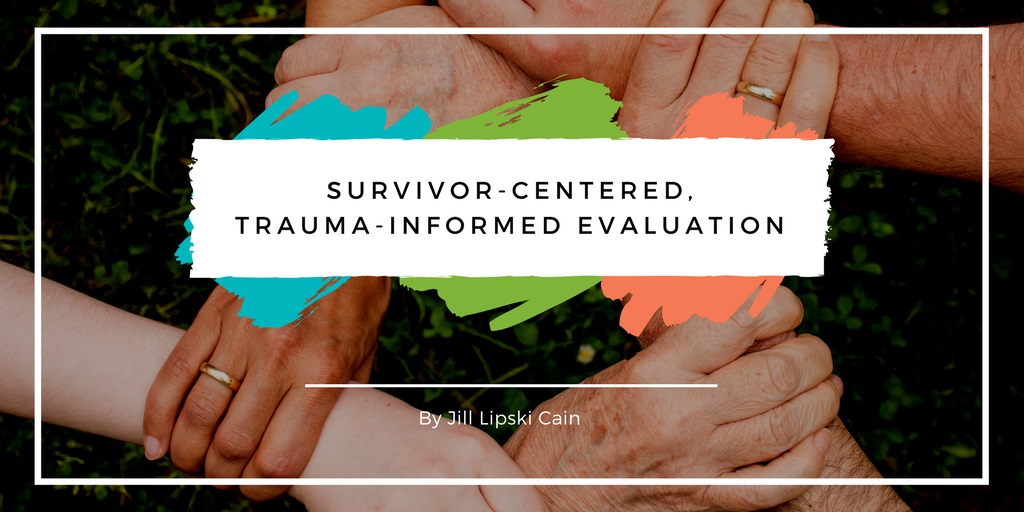
April is Sexual Assault Awareness Month, with a theme this year of “Embrace Your Voice.” Explaining this theme, the National Sexual Violence Resource Center says “The things you say every day send a message about your beliefs and values. When you stand up for survivors of sexual violence, you send a powerful message that you believe and support them.” This is an area of passion for us, as we have long partnered with clients working on primary prevention of sexual violence (for example, North Dakota’s Rape Prevention and Education program).
As evaluators, the idea of “Embrace Your Voice” also calls to mind the importance of trauma-informed, survivor-centered evaluation. Throughout all types of evaluations, we aim to uplift the voices of stakeholders. But especially when working on the issue of sexual violence, applying trauma-informed principles is important because it removes barriers to survivor participation.
Trauma-informed evaluation challenges us to deepen our self-awareness and sensitivity of our own positions and those of others. We know that sexual violence is a common trauma-inducing experience; we also recognize that trauma can be a result of accidents, natural disasters, or long-term exposure to neglect or conflict and can exist on an individual, family, and community level. While there are many kinds of trauma-inducing experiences, data on sexual assault alone is staggering: in the U.S., nearly 1 in 5 women and 1 in 71 men have been raped at some time in their lives (statistic courtesy the CDC). Moreover, Native women experience sexual violence at higher rates. For example, a recent study found 14.4 percent of American Indian and Alaska Native women had experienced sexual violence in the past year, compared to 5.4 percent of white women (statistics courtesy the National Institute of Justice).
Being mindful of these statistics, we apply trauma-informed principles that empower all individuals to participate in evaluation. According to the Substance Abuse and Mental Health Services Administration, a trauma-informed approach realizes the widespread impact of trauma, recognizes the signs and symptoms of it, and integrates knowledge about trauma to avoid re-traumatization. In evaluation, this approach recognizes the dynamics of power in our design, data collection, analysis, and communication of findings. It accounts for the effects of trauma in people we engage in our evaluation and informs a significant aspect of what we measure. One way to make an evaluation trauma-informed is to structure it so we can respond appropriately when someone becomes triggered. Without trauma-informed evaluation, we run the risk of re-traumatizing or triggering difficult feelings for the survivors.
Check out ways to show your support for Sexual Assault Awareness Month and “Embrace your Voice” at the National Sexual Violence Resource Center!
